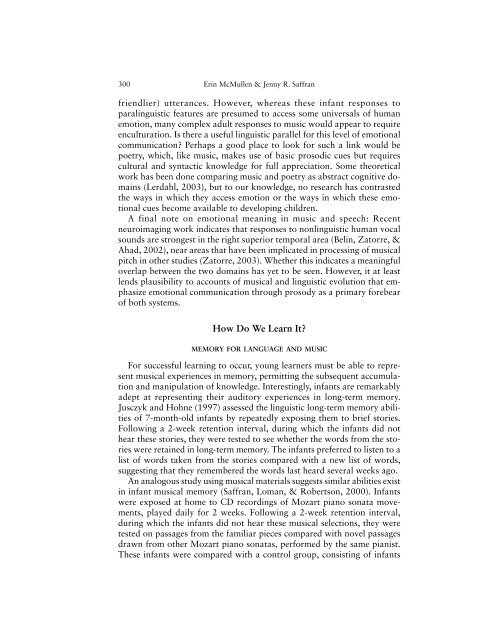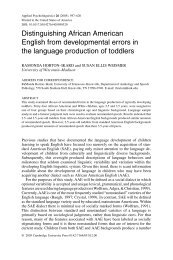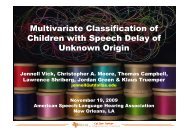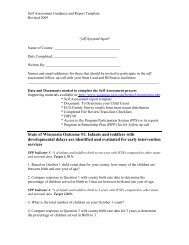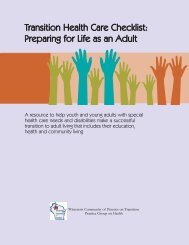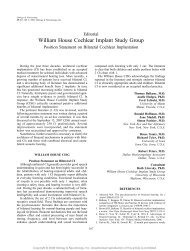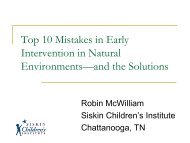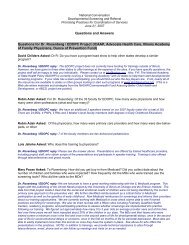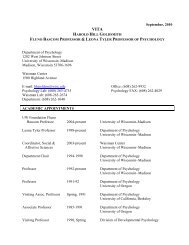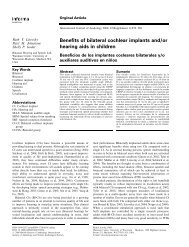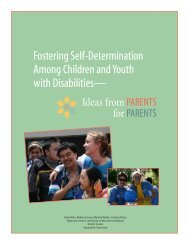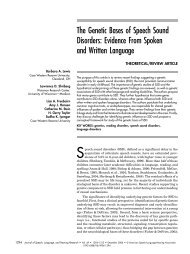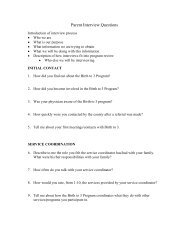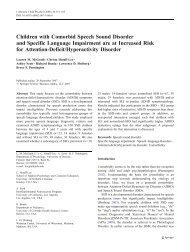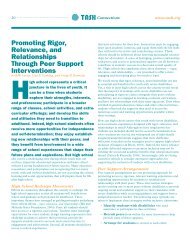Music and Language: A Developmental Comparison - Waisman ...
Music and Language: A Developmental Comparison - Waisman ...
Music and Language: A Developmental Comparison - Waisman ...
Create successful ePaper yourself
Turn your PDF publications into a flip-book with our unique Google optimized e-Paper software.
300 Erin McMullen & Jenny R. Saffranfriendlier) utterances. However, whereas these infant responses toparalinguistic features are presumed to access some universals of humanemotion, many complex adult responses to music would appear to requireenculturation. Is there a useful linguistic parallel for this level of emotionalcommunication? Perhaps a good place to look for such a link would bepoetry, which, like music, makes use of basic prosodic cues but requirescultural <strong>and</strong> syntactic knowledge for full appreciation. Some theoreticalwork has been done comparing music <strong>and</strong> poetry as abstract cognitive domains(Lerdahl, 2003), but to our knowledge, no research has contrastedthe ways in which they access emotion or the ways in which these emotionalcues become available to developing children.A final note on emotional meaning in music <strong>and</strong> speech: Recentneuroimaging work indicates that responses to nonlinguistic human vocalsounds are strongest in the right superior temporal area (Belin, Zatorre, &Ahad, 2002), near areas that have been implicated in processing of musicalpitch in other studies (Zatorre, 2003). Whether this indicates a meaningfuloverlap between the two domains has yet to be seen. However, it at leastlends plausibility to accounts of musical <strong>and</strong> linguistic evolution that emphasizeemotional communication through prosody as a primary forebearof both systems.How Do We Learn It?MEMORY FOR LANGUAGE AND MUSICFor successful learning to occur, young learners must be able to representmusical experiences in memory, permitting the subsequent accumulation<strong>and</strong> manipulation of knowledge. Interestingly, infants are remarkablyadept at representing their auditory experiences in long-term memory.Jusczyk <strong>and</strong> Hohne (1997) assessed the linguistic long-term memory abilitiesof 7-month-old infants by repeatedly exposing them to brief stories.Following a 2-week retention interval, during which the infants did nothear these stories, they were tested to see whether the words from the storieswere retained in long-term memory. The infants preferred to listen to alist of words taken from the stories compared with a new list of words,suggesting that they remembered the words last heard several weeks ago.An analogous study using musical materials suggests similar abilities existin infant musical memory (Saffran, Loman, & Robertson, 2000). Infantswere exposed at home to CD recordings of Mozart piano sonata movements,played daily for 2 weeks. Following a 2-week retention interval,during which the infants did not hear these musical selections, they weretested on passages from the familiar pieces compared with novel passagesdrawn from other Mozart piano sonatas, performed by the same pianist.These infants were compared with a control group, consisting of infants


